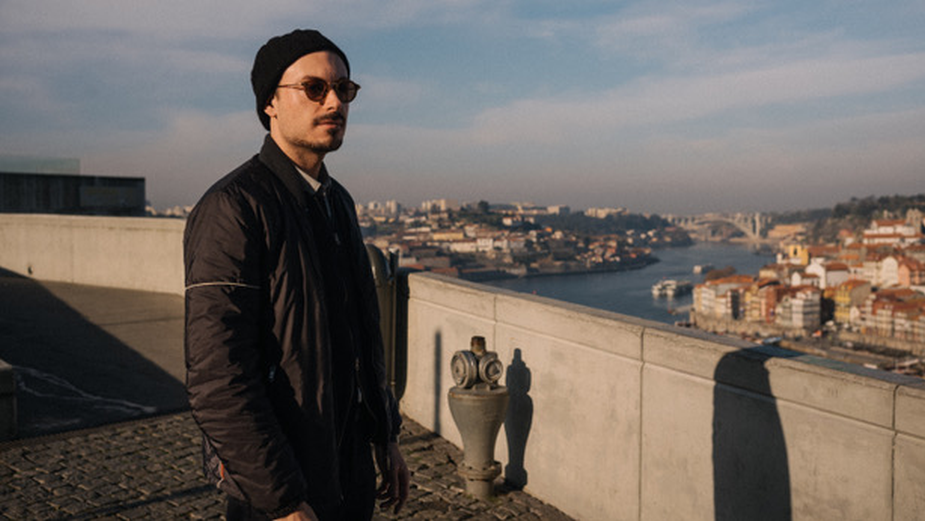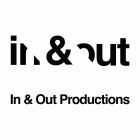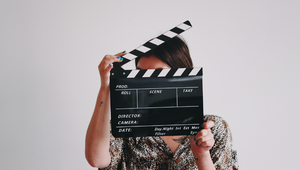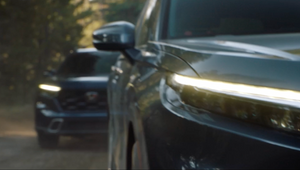
The Directors: T.J. Misny

T.J. Misny writes, directs, photographs and edits those moving pictures you keep hearing about.
He is currently in preproduction on his first feature film as writer/director, MATCHLESS OPPONENT.
His short films have screened at over six dozen film festivals worldwide, including DETRITUS (director/cinematographer/editor) which was awarded the Kodak Director's Prize at the 2015 Slamdance Film Festival.
As a comedy director, T.J's video work has accumulated over 200 million online views, including Comedy Central's 'Hack into Broad City'.
As a commercial director, T.J has directed over 40 spots for companies including Realtor, GE, Western Digital, SoFi, Qdoba, Kohls, Chrysler, YouTube, Hasbro, Schick, Twitter and US Cellular with agencies BBDO, R/GA, Goodby Silverstein, 360i, HUGE, Pereira O'Dell, J. Walter Thompson, Laundry Service, Big Spaceship and Mullenlowe.
Name: T.J. Misny
Location: Manhattan NYC
Repped by/in: In & Out / US
Awards: Kodak Director Prize / directed Emmy nominated “Hack Into Broad City” for Comedy Central
LBB> What elements of a script sets one apart from the other and what sort of scripts get you excited to shoot them?
T.J.> I’m always looking for comedy that’s based in something true. An experience we’ve all had, something absurd in life we have to deal with or even a common fear. In the best scripts, the audience brings the “setup” of the punchline to the table themselves: it’s something they’ve felt but might be seeing mocked or subverted on screen for the first time. It can be a very powerful thing for people to be given permission to laugh at something for the first time.
LBB> How do you approach creating a treatment for a spot?
T.J.> In comedy, every single creative decision (location, props, casting, lighting, editing, music etc) needs to be in service of the laugh. One wrong element can throw the balance off and sabotage the delivery of the joke. The treatment is a great opportunity to first clarify what’s funny about this script and then to break out how all of my creative decisions will combine to make the funniest version of the spot.
LBB> If the script is for a brand that you're not familiar with/ don’t have a big affinity with or a market you're new to, how important is it for you to do research and understand that strategic and contextual side of the ad? If it’s important to you, how do you do it?
T.J.> Comedy is subjective, so I have to put myself in the place of the target audience of the spot. Through asking the creative team and researching on my own, I try to get a sense of who needs to find this funny and why. I’m rarely the target audience myself, so having this perspective is crucial.
LBB> For you, what is the most important working relationship for a director to have with another person in making an ad? And why?
T.J.> Actors. Comedic projects sink or swim on performances, whether it’s a subtle look or a wild outburst. Commercial sets can be overwhelming to actors and I always work to make them feel comfortable, playful and creative so they can be at their best. I want them to know that amidst all the voices in video village, I’m on their side rooting for them.
LBB> What type of work are you most passionate about - is there a particular genre or subject matter or style you are most drawn to?
T.J.> I’m drawn to comedy because you can communicate more honestly in comedy than in any other form. People are more accepting of a new concept or challenging statement if it makes them laugh.
LBB> What misconception about you or your work do you most often encounter and why is it wrong?
T.J.> A misconception about comedy is that the funniest results are by giving actors a long leash to improvise, shooting a ton of coverage, and then putting all the funniest lines in the edit. I’ll draw the comparison to jazz music. You can only be a great jazz soloist if you’re disciplined enough to know the chord progressions by heart. In comedy, you can only be a great director if you come prepared with specific creative ideas and lines in your pocket, focus on the story first and use improvisation to enhance it an intentional way. Otherwise you’ll have a bunch of random lines that don’t tell a clear story.
LBB> How do you strike the balance between being open/collaborative with the agency and brand client while also protecting the idea?
T.J.> My experience in the NYC comedy world has taught me the “Yes And” theory, where in improv, you always take a partner’s suggestion to a scene, then add to it. Yes, And. I try to bring this theory to the creative discussions to cultivate a positive environment for everyone. Even if I don’t like an idea, I’ll try to “Yes And” because it could lead to a better one. But at a certain point, I have to stay focussed on the core comedic idea of the spot. When ideas are presented that totally detract from the core comedic idea we all signed up to make, it can be helpful to pause and look at the joke mathematically, while complimenting the creative team’s brilliant construction… (we’re creating an unexpected contrast between X and Y) to explain why an idea could derail the main “sink or swim” joke.
LBB> How do you feel the pandemic is going to influence the way you work into the longer term? Have you picked up new habits that you feel will stick around for a long time?
T.J.> I will always be a proponent of remote casting. It’s simply not necessary to travel (and to ask dozens of actors to travel, unpaid and wait in a hallway for hours) for a casting session.
LBB> Your work is now presented in so many different formats - to what extent do you keep each in mind while you're working (and, equally, to what degree is it possible to do so)?
T.J.> When this first became a trend, I used to joke about what “The Last Supper” would look like if da Vinci had to do a 9:16 crop. But now that this is standard for my work, I’ve seen that the care put into shaping the first 3-5 seconds of a spot for social attention spans winds up making the TVC versions more dynamic. By being more hyper-aware of the purpose of every second and every corner of the frame in each ratio, it forces an attention to detail that makes all versions of the spot better.
LBB> Which pieces of work do you feel really show off what you do best – and why?
T.J.> These four spots internally use different visual language and various styles of performance. My goal is to bring out what’s unique about the script rather than impose one aesthetic or tone onto that concept. What ties them all together is a love of actors, a love of faces and letting humanity shine through no matter how absurd the story is.













